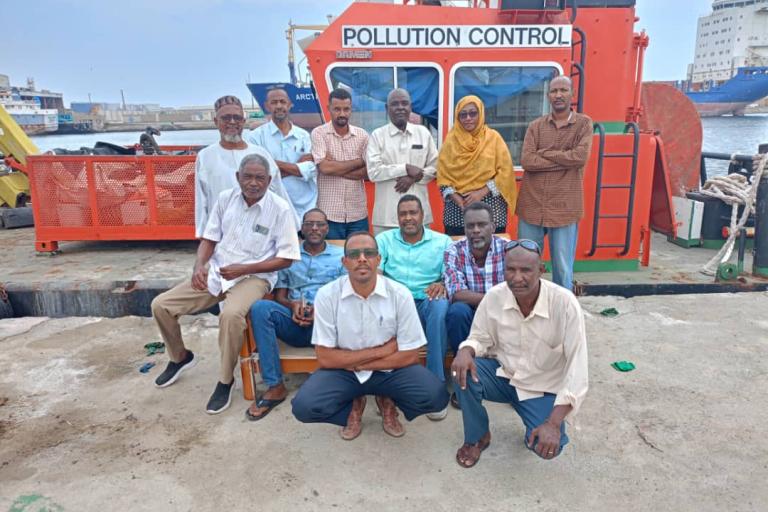Sudan Meteorological Authority on the Climate Action Frontline
Sudan, a country grappling with internal conflicts, faces a unique challenge in providing essential weather and climate information services.

Sudan, a country grappling with internal conflicts, faces a unique challenge in providing essential weather and climate information services. There is political and economic instability, many have been displaced, violence is rampant, and there is no end to the conflict in sight. However, the delivery of reliable weather forecasts and climate information remains crucial to empower communities, especially the displaced, to prepare for, and respond to, weather and climate phenomena such as floods and droughts, which are becoming more frequent and severe due to climate change. The robust climate services that the Sudan Meteorological Authority (SMA) are providing are paramount for building resilience and for achieving climate action goals.
The outbreak of the conflict in April 2023 threatened the continuity of climate services in Sudan, especially in Khartoum. SMA immediately proposed an emergency plan, which divided its workforce into three teams. One team was dispatched to Cairo to work at the Egyptian Meteorological Authority (EMA). One went to work at IGAD headquarters in Kenya. And the third stayed at home in the city of Port Sudan, which hosts the SMA coastal office. This approach – which has ensured service continuity, fostered resilience and demonstrated adaptation capacity in a volatile situation – offers lessons for Nation Meteorological and Hydrological Services around the world.
Over the last year, SMA has worked against many odds and achieved several remarkable milestones:
- The establishment of emergency operation centres, such as in Port Sudan, to ensure critical operations
- The re-establishment of essential operations, primarily from Port Sudan, thanks to the strategic placement of SMA staff at regional centres, like ICPAC and EMA, where they have access to forecasting resources and expertise that bolster SMA capabilities
- The manual collection of observational data from 29 stations as well as the rescue of historical data to rebuild critical climate information
- Maintenance of communication using email, WhatsApp and Facebook to disseminate weather and climate information; a new SMA website that was launched on World Meteorological Day, 23 March
- Participation in key events like Africa Climate Week and the 28th session of the United Nations Climate Conference (COP28)
- The launch of new partnerships with WMO and other organizations as well with the region’s NMOs for ongoing support.

During COP28, SMA General Director Dr Hanan Majzoub Rabbah participated in a panel discussion on early warning systems in conflict-affected regions. He outlined the effort to maintain climate services and emphasized the need for further collaboration and funding. SMA representatives also attended the Greater Horn of Africa Climate Outlook Forum where they highlighted the importance of regional climate forecasts for Sudan, given their limitations in generating national forecasts. In several international early warning systems forums, SMA representatives pointed to how they had improved such systems in Sudan even with the ongoing conflict.
At all of these events, SMA underscored their reliance on and support for regional collaboration, which become especially important during conflict. In view of financial limitations, SMA has also sought funding through proposals and collaborations with development partners and humanitarian organizations. Their continued collaboration with regional and international partners has secured funding to strengthen Sudan’s weather and climate service infrastructure.
SMA’s strategies over the last year demonstrate how NMHSs can adapt and maintain crucial services even in challenging environments. Their focus on collaboration, targeted communication, and user-centric information ensures climate services effectively addresses the needs of vulnerable communities.



